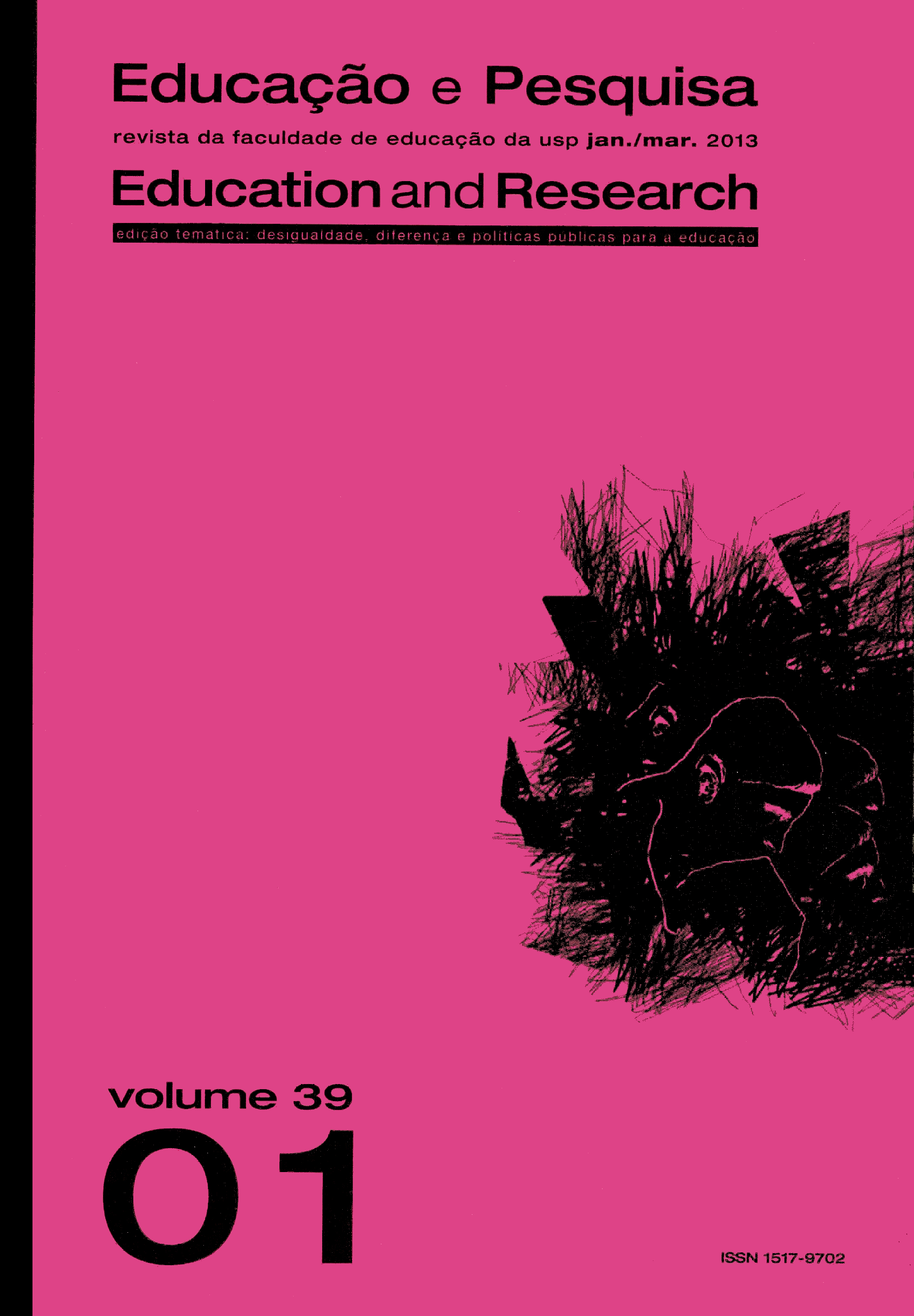As indicações dos organismos internacionais para as políticas nacionais de educação infantil: do direito à focalização
DOI:
https://doi.org/10.1590/S1517-97022013000100013Palavras-chave:
Política pública para educação, Educação infantil, Políticas sociais, Pobreza, Organismos internacionaisResumo
O objetivo deste artigo é analisar os discursos presentes em documentos elaborados por organismos internacionais e governos locais que orientam as políticas voltadas para a educação infantil, com base na concepção de educação como política pública, projeto de governo sob responsabilidade do Estado e direito de todos. A partir do referencial analítico de políticas desenvolvido por Roger Dale, concentramos nossas análises nos textos de diferentes documentos produzidos, sobretudo, pela UNESCO e pela UNICEF. O objetivo foi identificar as indicações desses organismos para a educação infantil e suas implicações na efetivação da política local. As análises demonstram que o deslocamento interpretativo da questão social no contexto latino-americano embasa a orientação, recorrente nos documentos, de adoção da educação infantil como estratégia de combate à pobreza e, desse modo, como uma via para promover a equidade social. A repercussão de tal indicação nas políticas locais para a educação infantil, especialmente no que concerne à universalização desse direito, é alarmante, visto que as análises apontam um movimento de ampliação de perspectivas conservadoras e excludentes que acabam reforçando a segmentação da educação das crianças menores de 6 anos.Downloads
Os dados de download ainda não estão disponíveis.
Downloads
Publicado
2013-03-01
Edição
Seção
Seção Artigos
Licença
A publicação do artigo em Educação e Pesquisa implica, automaticamente, por parte do(s) autor(es) a cessão integral e exclusiva dos direitos autorais da primeira edição para a revista, sem quaisquer honorários.
Após a primeira publicação, os autores têm autorização para assumir contratos adicionais, independentes da revista, para a divulgação do trabalho por outros meios (ex.: repositório institucional ou capítulo de livro), desde que citada a fonte completa, com as referências da mesma autoria e dos dados da publicação original.
As ideias e opiniões expressas no artigo são de exclusiva responsabilidade do autor, não refletindo, necessariamente, as opiniões da revista.
Como Citar
As indicações dos organismos internacionais para as políticas nacionais de educação infantil: do direito à focalização . (2013). Educação E Pesquisa, 39(1), 195-209. https://doi.org/10.1590/S1517-97022013000100013



